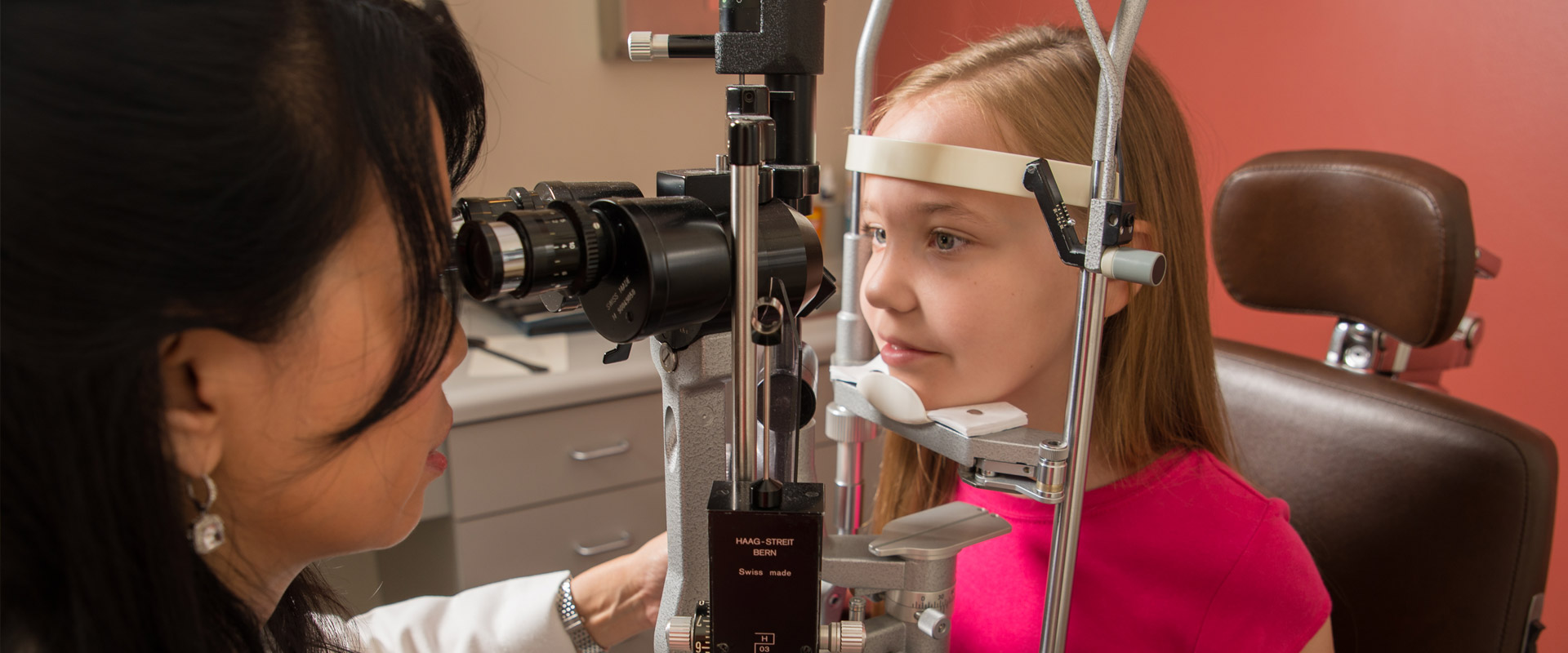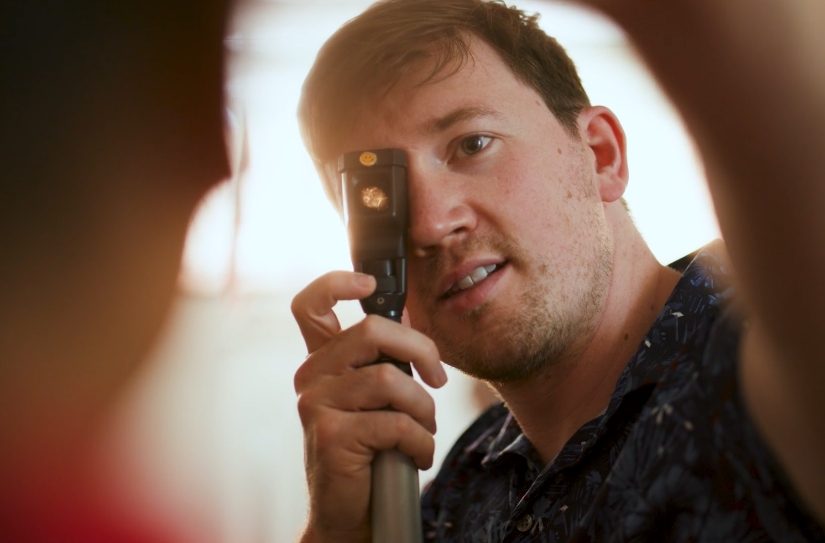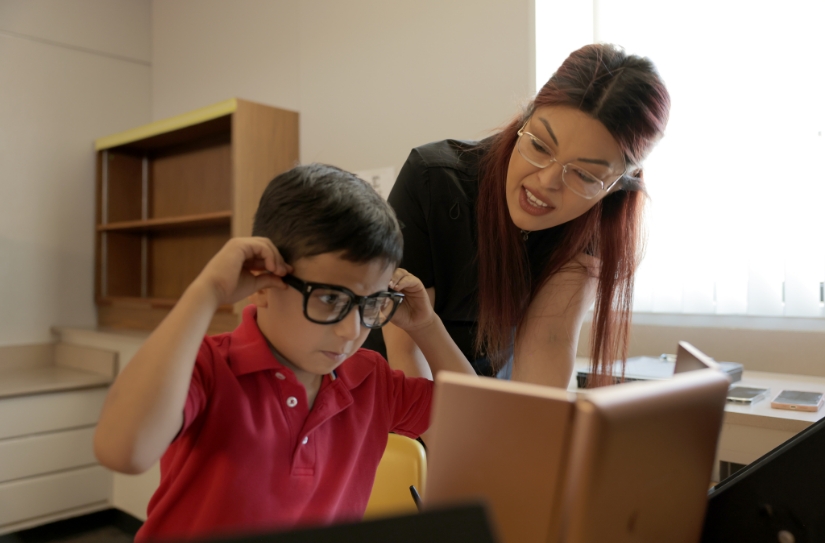
Eye Exams
and Treatment
Children who fail a vision screening are referred for a complete eye exam from an eye doctor (ophthalmologist or optometrist). If the exam confirms a vision problem, the doctor may prescribe eye glasses or other treatment options.

What is the difference between a vision screening and an eye exam?
Vision Screening | Eye Exam |
|---|---|
| Helps identify a child who may have an eye problem so they can be referred to an eye doctor for a complete eye exam. | Determines if a child has an eye problem and if treatment is needed. |
| Performed by healthcare providers, school nurses, or trained volunteers. | Performed by an ophthalmologist or optometrist. |
| Checks the eye’s appearance and for signs and behaviors indicating an eye problem. | Evaluates a child’s visual ability and overall eye health. |
| Assesses a child’s ability to track objects, see far and near, colors, and depth. | Assesses a child’s side vision, ability to track objects, see far and near, colors, and depth. |
Depending on a child’s age and vision needs, can use:
| Depending on a child’s age and vision needs, can use:
|
| Recommended for most children. | Recommended after a potential problem was detected in a vision screening. |
| Not recommended for children with neurodevelopmental delays or disabilities. | Recommended for all children with neurological disorders or delays. |
Who performs eye exams?
Complete eye exams are performed by professional eye doctors — either optometrists or ophthalmologists. Both are trained to examine children’s eyes and determine if there is a vision problem affecting their growth and ability to learn. It is best to have an eye doctor specifically trained to work with children (a pediatric optometrist or ophthalmologist), but many eye doctors will accept patients of all ages.
Ophthalmologists
Ophthalmologists are either a Doctor of Medicine (MD) or a Doctor of Osteopathy (DO) who are qualified to give comprehensive eye care, including vision services, eye exams, eye surgery, and diagnosis and treatment of vision diseases or complications.
Optometrists
Optometrists are considered a Doctor of Optometry (OD), which means that they can examine both internal and external eye structures. The main difference between optometrists and ophthalmologists is that optometrists are not trained to perform surgery or to manage all eye diseases.


What is included in an eye exam?
A complete eye exam includes several different tests to assess the child’s vision and an overall evaluation of their eye health.
The eye doctor will usually begin by asking about the child’s medical history. If the child is preschool age or older, the doctor will use charts with shapes or letters to test visual acuity, which tells how well your child can see. Other types of vision tests for color vision, stereopsis, visual tracking, and peripheral vision may also be used, depending on the child’s age.
The doctor will also use specialized equipment, such as a retinoscope or refractor, and a slit lamp, to get an in-depth look at the child’s eyes and find out if there is a vision problem. They may put drops in the child’s eyes to dilate their pupils to examine the inside of the eyes.
Treatment for children’s vision problems
If the eye doctor finds a vision problem, they may recommend treatment options to improve the child’s vision health. The good news is that the most common childhood vision problems can usually be treated with prescription glasses.
Depending on the child’s needs, other treatments include eye drops or medications, an eye patch (to strengthen the weaker eye in amblyopia), eye muscle exercises (vision therapy), or surgery (for problems that other treatments can’t correct).
Children with vision loss may need other services.

What parents and caregivers should do
Vision problems are common – about 25% of all school-age children have a vision problem – and most children’s vision problems are easier to correct when treatment starts early.
Uncorrected vision problems make it hard for young children to learn and do well in school. Vision problems can also affect children’s social development and overall health.
Here is what parents and caregivers can do for their child’s vision health:
If your child fails a vision screening
- Take your child to an eye doctor (ophthalmologist or optometrist) for a complete eye exam.
If the eye doctor finds a problem and recommends treatment
- Follow the treatment plan:
- Fill the prescription for eye glasses.
- Follow the doctor’s instructions for follow-up care.